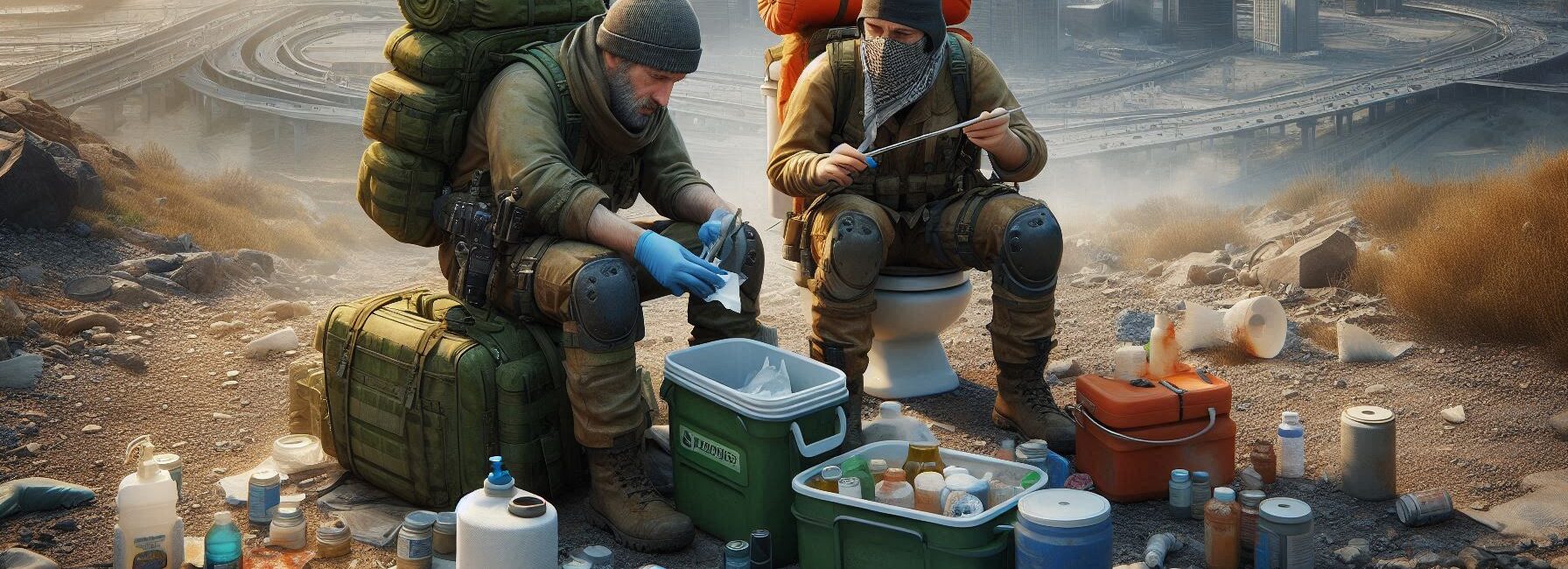Last Updated on November 1, 2025 by Kevin Collier
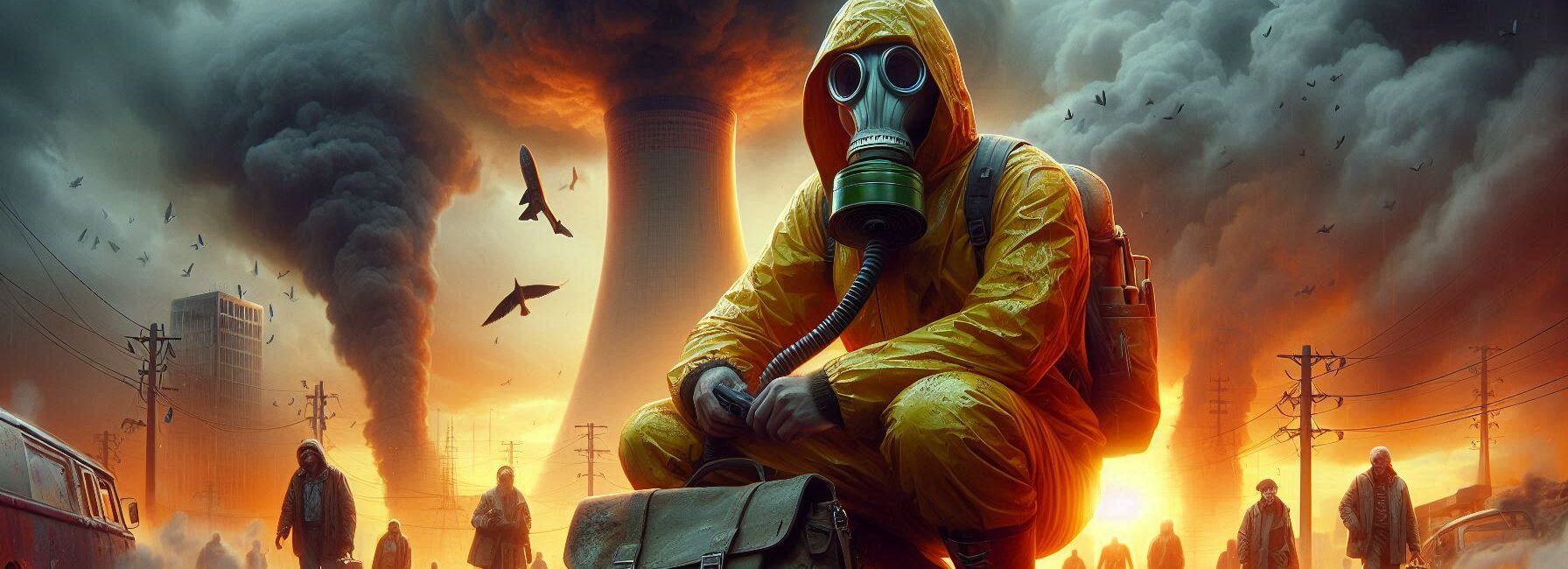
Top Takeaways and Key Concepts
- Seek Shelter Immediately: Enter a building or basement within 10–15 minutes of a detonation.
- Stay Indoors for 24–48 Hours: Limit exposure to radioactive fallout by remaining inside.
- Seal Entry Points: Close doors, windows, and vents; turn off fans and HVAC systems.
- Decontaminate Exposed Skin and Clothing: Remove outer layers and wash exposed skin thoroughly.
- Monitor Official Updates: Use a battery-powered or hand-crank radio for emergency information.
Think about waking up one day and everything seems off. Like, very strange. The laundry has made your favorite shirt all wrinkled. This time, though, it's not just clothes. A disaster has happened, and instead of sunshine, radioactive fallout is falling from the sky like confetti at a party that no one wants. Isn't it all a bit much?
What do you do to stay safe when things go wrong? Let's talk about it. Don't worry; we'll keep it light. When things are tough, a little comedy can help a lot.
Please Note: This post may contain affiliate links. If you click one of them, we may receive a commission at no extra cost to you. As an Amazon Associate, I earn from qualifying purchases.
First, get out of the rain. It's like making a comfortable blanket fort, but instead of that, you're seeking for a strong roof over your head. A basement or a space within that is away from windows is ideal. It can be like a little adventure! Get some things ready, such water and snacks. It's like getting ready for a camping trip, but without the great campfire stories.
Next, keep your radio close by. Not simply for music. It tells you what's going on outside. It's like having a friend who tells you the news when you're confused. Make sure you can charge your phone if you don't have one. Your best buddy is information.
It's good to grin even though all of this is serious. You could think about how your favorite movie would deal with this. Would the hero get scared, or would they come up with a smart plan? Be like an action star!
Take a deep breath when you can't make up your mind. You have a lot to deal with right now because of this crazy scenario. Keep in mind that you can work things out, step by step. If your friend is with you, lean on them. Even the hardest days are easier when you have friends.
And after everything is over and you're safe, think of all the stories you'll have. “Do you remember when the world flipped over?” It will be the fun you have together, with some funny stories and maybe some made-up ones.
Having a sense of humor is a secret weapon. It's like finding a treasure in a mess. So, get ready, stay safe, and remember that you can manage anything together!
Contents of This Page
*** Shop for Survival Gear - Tools - Kits ***
Survival Gear - Bags and Backpacks - Knives - Boots/Footwear - Communication
Outdoor Cooking - Gloves - Hydration - Dry Boxes - Water Filtration Systems
Tents - Sleeping Bags - First Aid Kits - Multi-Tools - Flashlights - Fire Starters
Navigation - Survival Food - Night Vision - Headlamps - Stun Guns - Binoculars
Understanding Radioactive Fallout: What Are We Dealing With?
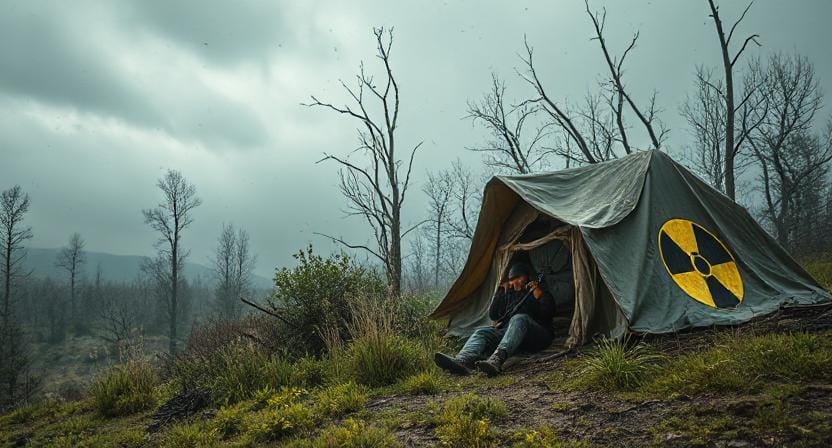
First, let's speak about what fallout from a nuclear explosion really is. It's like that awful glitter that gets everywhere after a craft project goes bad. When a nuclear bomb goes off, tiny pieces of matter are shot into the air and subsequently fall back down to Earth. If you breathe them in or swallow them, these particles can be dangerous. Whoa!
I know what you're thinking: “Isn't this just another twist in my favorite movie about the end of the world?” Those movies might be fun to watch and have great popcorn scenes, but they don't prepare you for real life.
You need to know what the risks are and how long these particles can stay around, like that relative that stays too long during the holidays.
It's interesting to note that not all fallout is the same! Some isotopes break down fast, while others stay around longer than your neighbor's cat on your doorstep. Knowing which ones are more harmful helps you decide what safety steps to take first.
Find Shelter: Your Best Friend After a Disaster
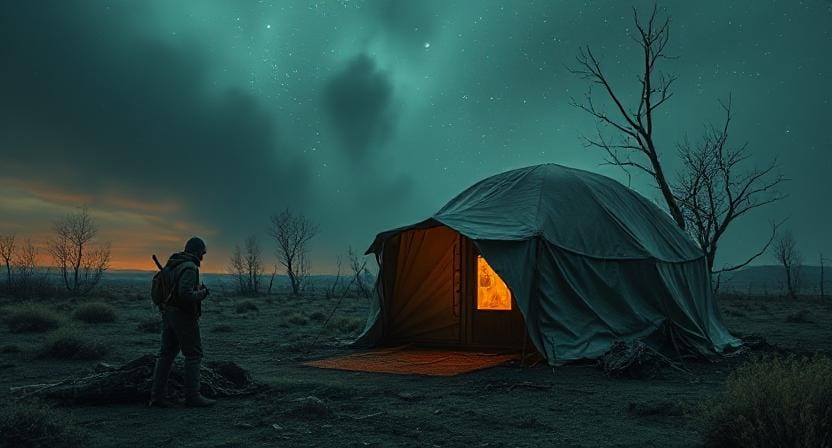
One thing I've learned from camping trips that went wrong is that it's really important to find shelter, especially when Mother Nature gets angry. If there is a nuclear event, the first thing you should do is go indoors as soon as you can. You want something strong between you and those annoying radioactive particles.
By the way, basements are great places to hide! They are normally below ground level, which makes them safer from radiation than spaces above ground.
If you don't have a basement (or if Uncle Larry's huge collection of lawn gnomes is already there), look for an inside room with no windows. It should be about the size of a closet but not smell like old shoes.
And to be honest? It's not just for doomsday preppers to stock up on supplies ahead of time; it's good preparation! You'll be glad you stocked up on water, non-perishable food, and flashlight batteries when you don't have to search through mountains of wreckage for granola bars.
Close Off Your Space: Keeping Radiation Out
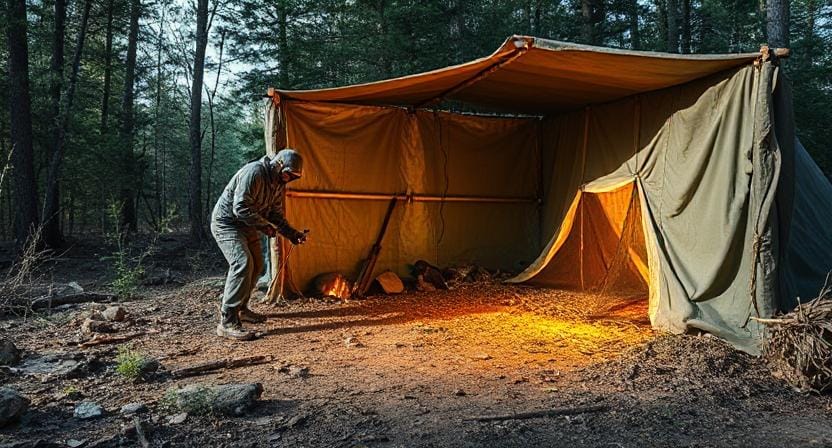
Once you've found a place to stay (and maybe pushed Uncle Larry out), it's time to close everything up so tightly that it seems like Grandma's pickles are in a jar. Shut all the doors and windows. If you need to, apply duct tape. Yes, I said duct tape. It's the miracle remedy for anything from mending damaged furniture to keeping your homemade bunker safe from fallout.
Cover up any holes or vents that could let air in and bring in those nasty particles. You might think you're getting ready for an extraterrestrial invasion instead of shielding yourself against radiation, but whatever works!
You may also use heavy blankets or tarps over doors and windows as further barriers. Think of them as warm shields against danger! Also, they might help quiet any yelling that happens when people are scared while watching news stories about what's going on in the world.
Stay in the Know: Knowledge Is Power
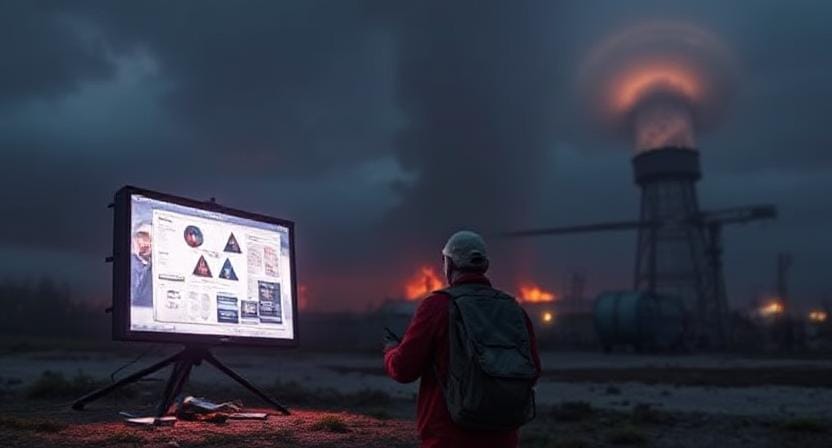
When things go wrong, like when the Wi-Fi goes out, it's important to stay informed! Once everything else stops working, battery-powered radios become incredibly useful. Listen to emergency broadcasts. They will tell you when to leave your home and how long you should stay inside.
Speaking of which, don't forget to bring your phone! If you charge it first, it will still work without electricity. Just don't waste battery life going through social media feeds that depict everyone else's normal lives while yours feels like an episode of “Survivor.”
On the other hand, maybe you should stay off of social media during these kinds of emergencies unless you're ready for memes to go popular showing people trying to get away from radioactivity while wearing tinfoil hats!
Get Ready Mentally: How to Stay Calm When Things Get Tough
People frequently forget about getting their minds ready when they are getting their bodies ready, but it's just as crucial! Panic won't help anyone survive. Instead, focus on making rituals in your safe space that help you stay calm in the middle of chaos.
Before the big day, think about practicing relaxation techniques. Deep breathing exercises are great for when your anxiety levels start to rise, like Uncle Larry after too many cookies at Thanksgiving dinner!
Make sure everyone knows what their job is in this temporary community so that there isn't a lot of confusion when things get tense (because trust me, no one wants to fight over who gets the final can of beans).
Keeping the joke going? For sure! A good chuckle can make a big difference, even when things are hard. Think about being in a scary circumstance. Then, someone tells a joke. All of a sudden, everything seems lighter. It's like uncovering a secret store of chocolate when you thought you had no hope.
Even if things are crazy right now, if someone asks you, “What do you call a bear with no teeth?” A bear made of gummy! It's hard not to smile. Laughter may help people connect and bring them together when things are hard.
Look at it this way. You and your friends are sitting around during a disaster and feeling a little disoriented. Then, one of the friends puts on a funny hat or starts to dance in a silly way. It can seem silly, but it makes people feel better. A little bit of silliness makes everyone feel better.
You can also think more clearly when you laugh. Your brain operates better when you can laugh. You can work together to come up with a plan. It's like magic!
When you are terrified or anxious, think of something that makes you chuckle. A humorous YouTube video, a beloved recollection, or a silly pet. It's fine to talk about those topics. Your laughter can make other people feel better, like the sun coming out after the storm.
So, keep those funny stories and quips close. They're like small gems hidden in your heart. It's always helpful to have on hand when things become difficult. And don't forget that chocolate can't fix everything, but laughter can!
Frequently Asked Questions
How soon should I seek shelter after radioactive fallout begins?
You should enter a building or basement within 10–15 minutes of a detonation to reduce early exposure.
How long should I remain indoors after fallout?
Most guidance recommends staying inside for at least 24–48 hours until radiation levels decline.
Why should doors, windows, and vents be sealed?
Sealing reduces the amount of airborne radioactive particles entering your shelter space.
Is decontamination needed if I was outside during fallout?
Yes. Removing outer clothing and washing exposed skin helps eliminate radioactive particles from your body surface.
What type of shelter offers the most protection?
Basements or interior rooms away from windows provide better shielding from gamma radiation and airborne dust.
How can I stay informed without power?
Battery-powered or hand-crank radios let you receive emergency updates when grid power or cell towers fail.
Can humor and calmness help during fallout sheltering?
Maintaining calm reduces panic and supports clearer decision-making, which is valuable during extended shelter periods.
Suggested Resources:
Emergency Preparedness Guide
https://www.ready.gov/prepare
CDC Radiation Emergencies
https://emergency.cdc.gov/radiation/
Nuclear Fallout Shelter Plans
https://www.fema.gov/emergency-management/radiological-emergencies
How To Build a Survival Kit
https://www.redcross.org/get-help/how-to-prepare-for-emergencies/survival-kit-supplies.html

Kevin Collier is a seasoned survivalist and expert in prepping and homesteading, contributing to WiseSurvive.com. With a deep-rooted passion for self-sufficiency and outdoor survival skills, Kevin shares practical advice, strategies, and resources to help individuals prepare for any challenge. His informative articles cover a range of topics, from essential survival techniques to sustainable living practices, empowering readers to thrive in any situation. Whether you're a novice or a seasoned prepper, Kevin's insights will inspire you to take charge of your readiness and build resilience for the future.



